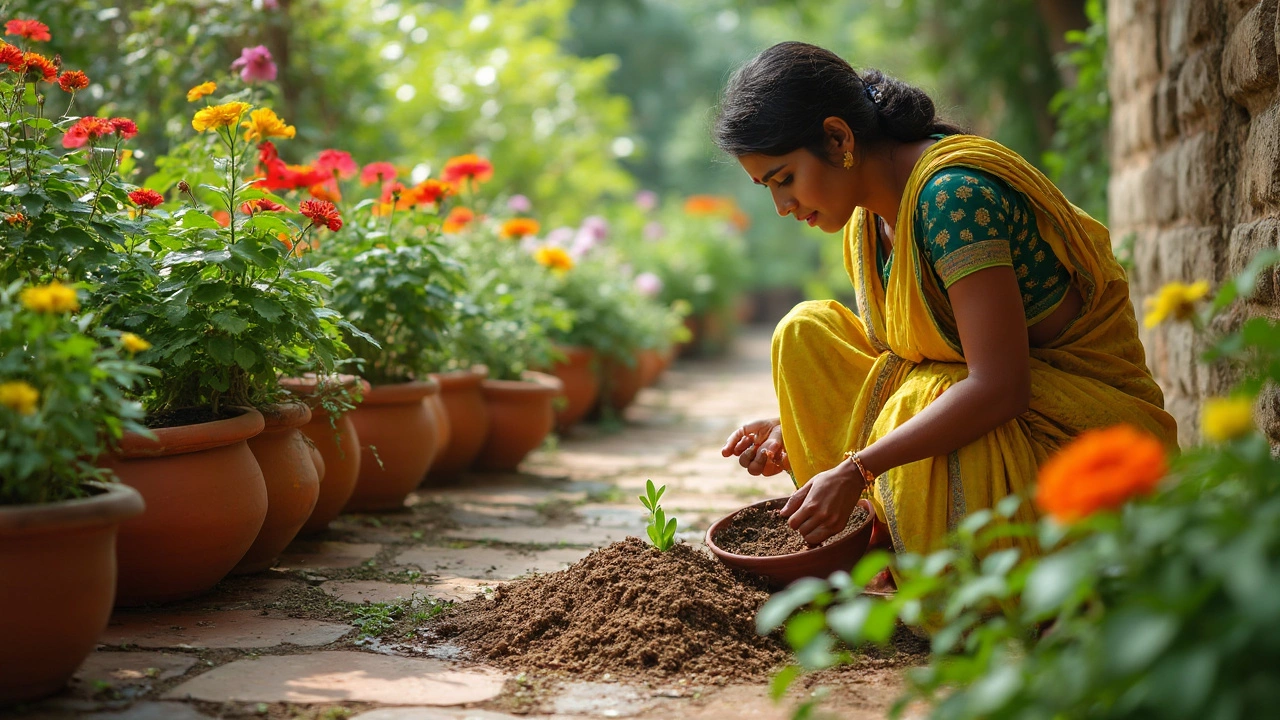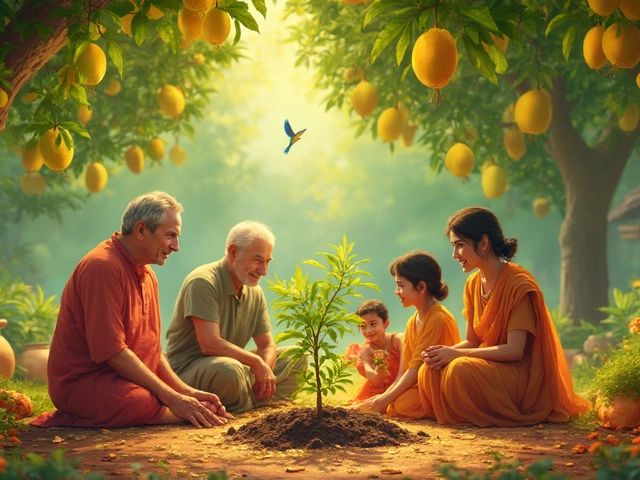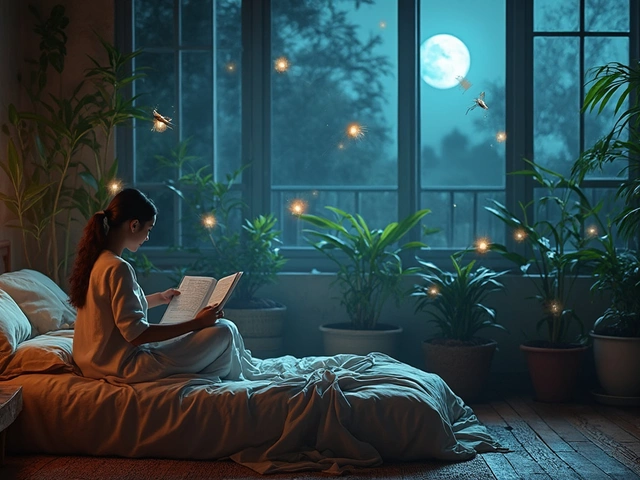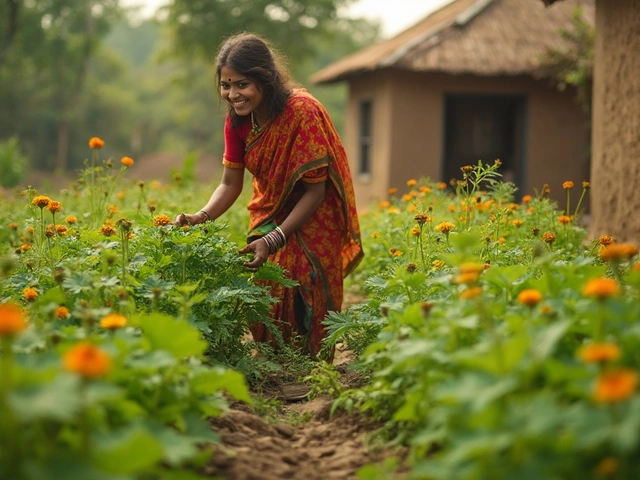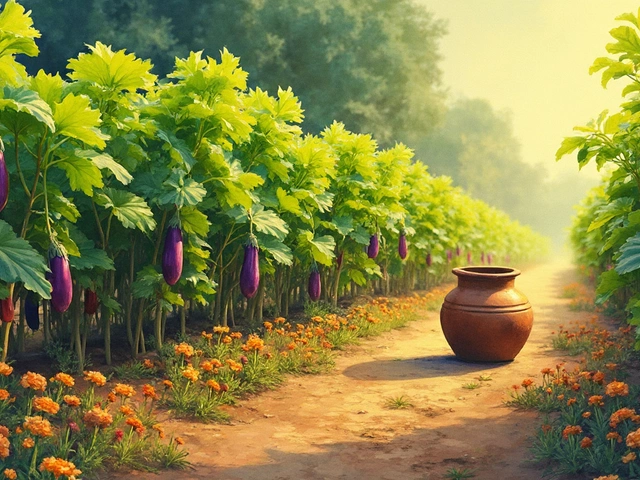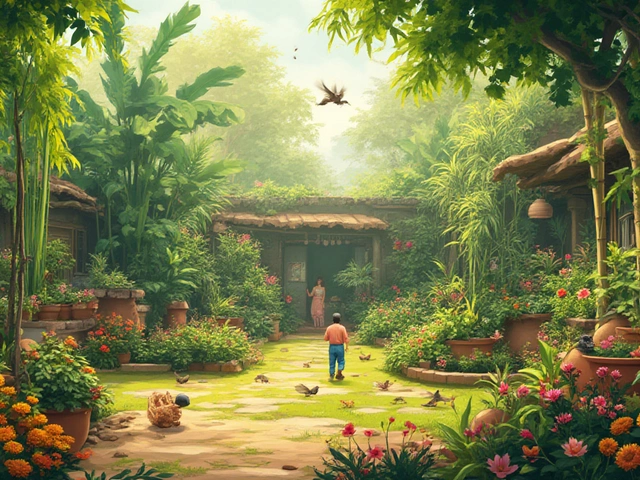Gardening can be simple and rewarding, but what if I told you it could also be smart and sustainable? It's about making clever choices that help not just your plants, but also the environment. Think about it: your little patch of green can positively impact the planet. How cool is that?
So, what's the deal with smart gardening? First off, it's all about using what's naturally available. Composting, for instance, turns kitchen waste into plant food. It's like recycling on a small scale, and your plants will love you for it.
But that's not all. Watering smarter can save not just your garden but also your bills. Ever heard of drip irrigation? It delivers water directly to where it's needed, using less water in the process. Plus, collecting rainwater not only cuts down your water usage but also keeps your plants happy with untreated, chlorine-free water.
These are just a few ways to make gardening a win-win. Keep reading to explore more ideas that fit your lifestyle and help the planet, all while making your garden flourish.
- Understanding Smart Gardening
- Eco-Friendly Practices
- Water Conservation Techniques
- Biodiversity and Pest Control
Understanding Smart Gardening
When it comes to sustainable gardening, the first step is to understand what makes a garden "smart." At its core, smart gardening means working with nature instead of against it. This approach isn't just about being eco-friendly; it's about being efficient and savvy in how you use resources.
Did you know that gardens designed with native plants are more resilient and require less maintenance? Plants that naturally thrive in your local climate don't need as much water or chemicals, because they're already adapted to the conditions. This not only saves you time and effort but also supports local biodiversity.
Here's a little-known fact: more than 30% of household waste that ends up in landfills could be composted. By turning organic waste into compost, you're not just reducing landfill waste, but also enhancing your garden's soil. Compost enriches the soil with nutrients, improves its structure, and increases its ability to hold water. This is a win-win for you and the environment.
Another important aspect of smart gardening is using renewable energy sources or energy-efficient equipment. This could mean choosing solar-powered lights for your garden or using hand tools instead of power tools that rely on fossil fuels.
- Start by assessing your garden's specific needs. Observe sunlight patterns, soil quality, and water drainage.
- Use perennial plants that last for multiple years to reduce replanting costs and efforts.
- Install rain barrels to collect rainwater for irrigation purposes.
- Practice crop rotation or intercropping to prevent soil depletion and manage pests naturally.
By incorporating these methods, you'll not only create a more sustainable garden but also enjoy the peace of mind that comes from nurturing your patch of earth responsibly.
Eco-Friendly Practices
Let’s talk about ways to make your gardening routines greener and more sustainable. First up, using eco-friendly gardening practices is a big deal. It’s about minimizing waste and maximizing the health of your garden and the environment.
One easy way to get started is with composting. This process transforms kitchen waste like vegetable peels and coffee grounds into nutrient-rich food for your plants. Set up a compost bin in a corner of your backyard, and you'll cut down on garbage while enriching your soil. It's like giving back to nature in the most practical way.
Speaking of soil, ever heard of organic gardening? It involves using natural fertilizers and pest control. Rather than synthetic products, look for things like fish emulsion, bone meal, or neem oil, which can effectively keep pests in check without harming beneficial insects or the ecosystem.
Let’s not forget about recycling in your sustainable gardening setup. Old plastic bottles can be turned into mini greenhouses or drip irrigators. It’s all about thinking outside the box.
When planning your garden, consider native plants that are well-suited to your local climate. They typically require less water and are more resistant to local pests and diseases. Plus, they’ll attract local pollinators, supporting biodiversity in your area.
For a quick look at some advantages of these practices, check out this simple table:
| Practice | Benefit |
|---|---|
| Composting | Reduces waste, enriches soil |
| Organic Fertilizers | Safe for environment, boosts plant health |
| Native Plants | Less water, supports biodiversity |
Adopting these strategies will not only make your garden lush but also help protect the planet. Start with small changes, and you'll be amazed at the impact!
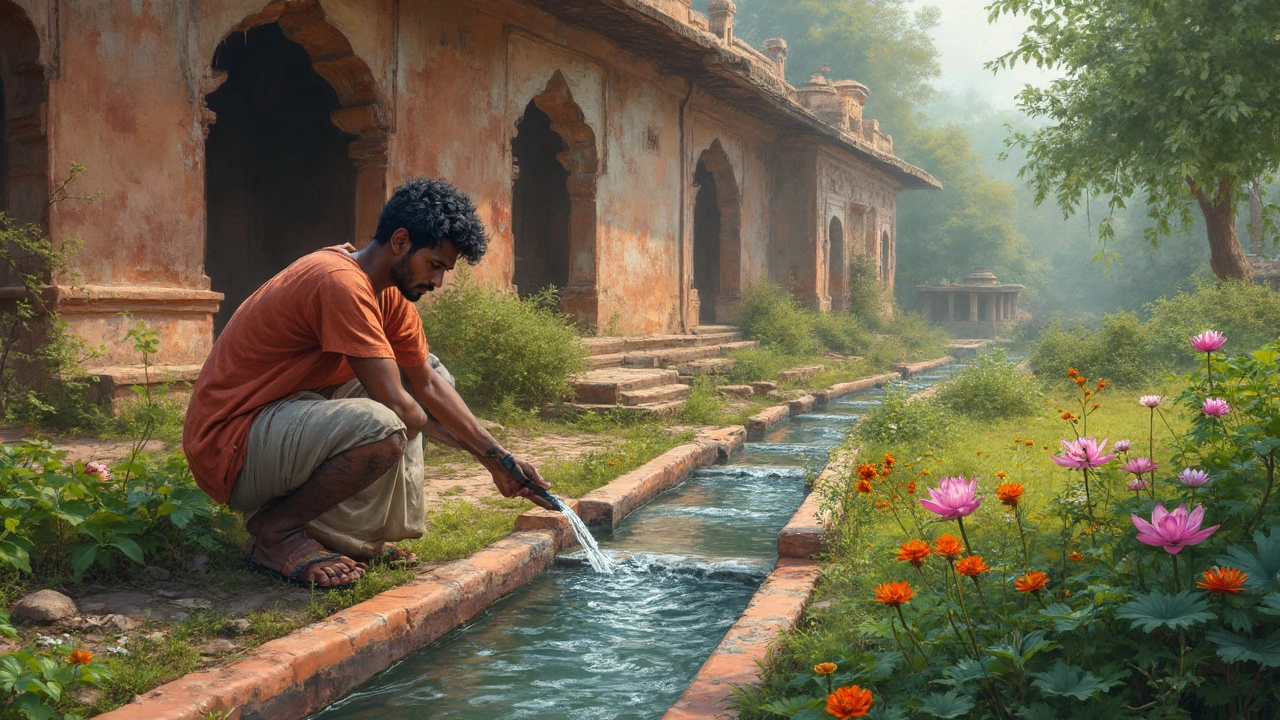
Water Conservation Techniques
Saving water doesn't mean skimping on your garden's needs. In fact, water conservation in sustainable gardening is all about using water efficiently to ensure every drop counts. Let's look at some practical techniques that help your garden thrive without wasting water.
First up, let's talk about drip irrigation systems. These are a game-changer. They deliver water directly to the plant's base, minimizing evaporation and runoff. Plus, they can be set on timers, ensuring your plants are hydrated at the best times, like early morning or late evening. This not only conserves water but also keeps your garden lush and healthy.
And don't forget rain barrels. They collect free rainwater, which is perfect for plants because it's chemical-free. Install them under a downspout to capture runoff from your roof. It's like setting up your garden's personal water supply.
- Place mulch around plants to retain moisture and reduce evaporation.
- Choose drought-resistant plants if you're in a dry area—cacti, succulents, or lavender are great picks.
- Group plants with similar water needs together to avoid overwatering those that require less moisture.
Here's another tip: pay attention to the soil. Adding organic matter helps retain moisture, which means you'll water less often. Think compost or well-rotted manure. Your garden will reward you with bountiful blooms.
Here’s a glimpse of water usage:
| Technique | Water Savings |
|---|---|
| Drip Irrigation | Up to 50% |
| Rain Barrels | 10-30% reduction |
So, give these methods a try. Not only will they help in eco-friendly gardening, but they'll also cut down your water bill. Remember, when you conserve water, you’re doing your bit to support a sustainable planet. And that's pretty powerful, don't you think?
Biodiversity and Pest Control
Boosting biodiversity in your garden isn't just a trendy concept; it's a smart gardening strategy that tackles two issues at once: pest control and ecosystem health. When you invite more life into your garden, you're essentially setting up a mini-ecosystem where every player has a role, including keeping pests in check.
Start by planting a variety of species. Different plants attract different insects and animals, creating a balance. This natural balance helps maintain a healthy garden. For example, ladybugs, known for munching on aphids, are your garden's best friends. Planting flowers like marigolds and daisies can invite these beneficial bugs into your space.
Setting up habitats for wildlife is another great move. Adding a birdbath or a small pond can attract birds, who are natural pest controllers, gobbling up everything from beetles to spiders. Hedgehogs, which enjoy a cozy pile of leaves, are great at feasting on slugs and other unwanted critters.
Let's not forget companion planting. Pairing certain plants can naturally repel pests or enhance each other's growth. Basil with tomatoes does wonders; basil drives away flies and mosquitoes, while tomatoes flourish.
And here's a handy list of savvy pairings to maximize your pest control efforts:
- Marigolds and tomatoes: Marigolds deter nematodes and whiteflies.
- Garlic and roses: Garlic scares off aphids.
- Carrots and chives: Chives ward off carrot flies.
So, by fostering biodiversity, you're not just cutting down on pesticide use but also cultivating a sustainable gardening environment. Plus, it's a fun way to see your garden buzzing with life!
